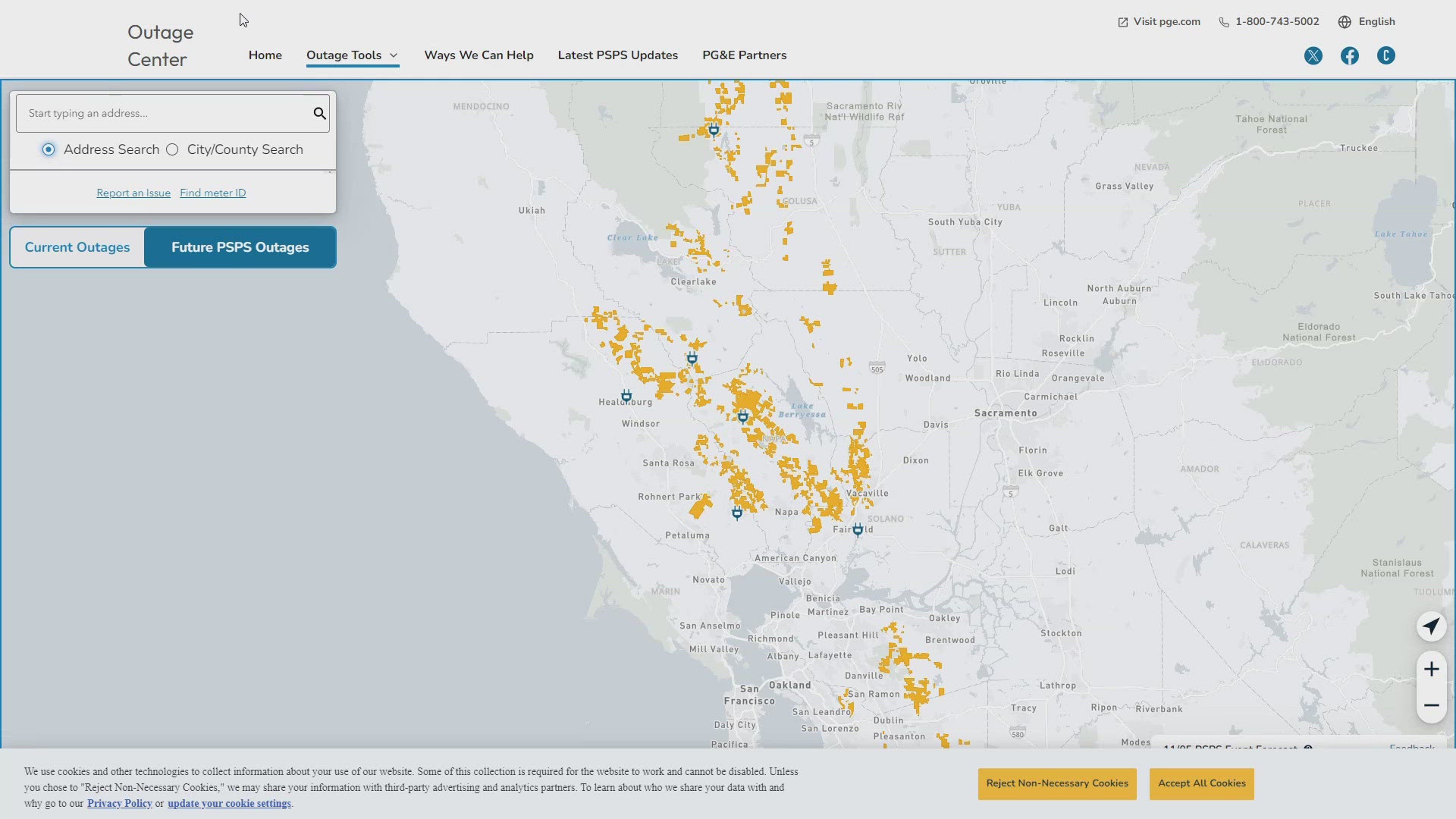SACRAMENTO, Calif. — Alice Stebbins has a simple message to the people of Paradise, “I’m sorry.”
Stebbins offered the apology on the same day she cleaned out her desk as Executive Director of the California Public Utilities Commission, the state agency that regulates PG&E and other for-profit utility companies. Stebbins managed the CPUC during its investigation of the 2018 Camp Fire and several other deadly fires sparked by PG&E power lines the year before.
At first, the CPUC's investigation settled on a $200 million fine to punish PG&E for breaking state safety rules meant to prevent wind damage from sparking power line fires. This fine was more than 50 times as much as the one PG&E was sentenced to pay in criminal court for its Camp Fire crimes.
But when it came time to hand down PG&E’s punishment, the five appointed CPUC commissioners decided to rip the ticket up.
Stebbins didn’t get a vote. It was her job to carry out the decision.
“It's just terrible,” Stebbins said. “I don't think we held PG&E accountable. And I know we made the wrong decision.”
“She's the first person in all of this I've heard say she was sorry, she did something wrong,” Phillip Binstock, whose father Julian Binstock was one of the victims in the Camp Fire, said. “For her to do that must have taken a lot of guts.”
Gov. Gavin Newsom’s office has ignored repeated requests from ABC10 to comment on the CPUC’s conduct, including the agency’s refusal to cooperate with criminal investigators. CPUC President Marybel Batjer declined our requests for an interview.
The CPUC commissioners fired Stebbins this past summer amid a whisteblower / human resources dispute. Stebbins filed a lawsuit Thursday, Dec. 3, against the state government for retaliation against a whistleblower.
Her story is featured in "The Whistleblower," an all-new episode of ABC10's FIRE - POWER - MONEY investigation of the PG&E wildfire crisis airing at 6:30pm on Thursday.
THE PENALTY THAT WASN’T
In the middle of her on-camera interview with ABC10, Stebbins changed her mind about whether the CPUC had even penalized PG&E's safety violations at all.
Despite the commission’s vote to waive payment of the $200 million fine, the CPUC’s communications office attempted to convince the public that the agency had imposed a meaningful punishment of nearly $2 billion.
Holding a copy of that press release, Stebbins changed her mind in mid-interview about whether it told the truth:
ABC10: The bulk of this, $1.8 billion, is “disallowances of wildfire expenditures.”
Stebbins: Yeah, true.
ABC10: Now, they can't argue it was a prudently caused wildfire can they?
Stebbins: No.
ABC10: So it was never really allowable to begin with?
Stebbins: Correct.
ABC10: So is this just a bunch of window dressing?
Stebbins: Yeah. I mean the media [affairs office] for the PUC is really good. They know how to write.
ABC10: So almost the entirety of what's the “biggest penalty ever” was something they weren't really allowed to charge customers for anyway?
Stebbins: Yes.
“Disallowances” are wildfire-related costs that PG&E has agreed to pay at the expense of shareholders, rather than passing on to customers. This can include expenses like rebuilding the power grid PG&E burned down in Paradise. In that respect, PG&E’s supposed “penalty” is similar to requiring a drunk driver to pay to fix their own car after a crash.
But it may go further than that, PG&E has also dubbed a lawsuit holding up the release of the grand jury records for its Camp Fire crimes to be a "wildfire-related" expense.
WHY A PENALTY MATTERS
Stebbins isn’t the only CPUC insider disappointed in the agency’s behavior.
“There wasn't a principled basis for saying, ‘oh let's just make them not pay the $200 million,'” former CPUC commissioner Catherine Sandoval said. “I think it's problematic. And I would not have voted that way.”
Sandoval teaches law at Santa Clara University and remains active in CPUC decisions by advocating for improved regulation of utilities.
“They continue to engage in criminal thinking,” Sandoval said of PG&E, arguing that the company hasn’t learned its lesson after being convicted of crimes in the 2010 San Bruno Gas Explosion and the 2018 Camp Fire.
The CPUC’s decision to waive a $200 million fine for PG&E isn’t helping, Sandoval noted.
“There were massive multiple violations and these violations killed people,” Sandoval said. “Part of the purpose of these penalties is to deter this conduct. Have you really deterred this conduct?”
PG&E is already under a new homicide investigation, suspected of sparking the Zogg Fire in September 2020. The fire killed four people in the community of Igo, including an eight-year-old girl and her mother who died trying to escape their home in a pickup truck.
CRIMINAL PUNISHMENT WAS MINIMAL
Earlier in 2020, PG&E pleaded guilty to 84 felony counts of involuntary manslaughter and one more felony for illegally sparking the fire through reckless, criminally negligent maintenance of its power grid. Prosecutors said a nearly 100-year-old hook was left to sit in the wind-prone Feather River Canyon until it wore down and snapped, allowing a high tension line to hit the metal tower holding it in the air.
The crimes were punishable by 90 years in prison.
Corporate offenders can’t go to prison, so PG&E was sentenced to the same $3.5 million maximum fine that a human offender would pay under state laws. Butte County prosecutors have called on the state legislature to change those laws, but the idea hasn’t gotten momentum.
Eight out of ten California lawmakers took campaign contributions from PG&E after it was convicted of the San Bruno felonies and began serving its five year sentence of probation. In 2019, Gov. Gavin Newsom, who received $208,000, called it a "strange question" when we asked why it was okay for him to accept campaign funds from a convicted felon.
Lawmakers did pass a “plan B” law to allow the state to take over PG&E’s power grid, but no move has been made to do so. The CPUC, which administers PG&E’s monopoly license, has the power to revoke it any time.
Stebbins fielded that question, too:
ABC10: If I'm negligent driving my car drunk and I kill someone eventually I'm going to lose my license. How is PG&E any different?
Stebbins: They shouldn't be any different, but they're a very big and powerful business in California. And they seem to be able to get away with a lot.
This story is part of ABC10's reporting project FIRE-POWER-MONEY: California's burning crisis and how it's costing us all. Season two takes viewers inside the criminal investigation of the Camp Fire, America's largest-ever corporate homicide conviction. New episodes are available on ABC10 at 6:30, YouTube, and www.FirePowerMoney.com. Send tips and story ideas to investigative reporter Brandon Rittiman at brittiman@abc10.com



